

AframNews.com
“Addressing Current & Historical Realities Affecting Our Community”


BLACK NEIGHBORHOODS STAY IN THE DARK
By: Roy Douglas Malonson
When a hurricane slams into the Gulf Coast, everyone braces for the same thing—violent winds, ooding rain, and power outages that can last for days. But what happens a er the storm isn’t equal. Again and again, the evidence shows that Black and lower-income neighborhoods wait longer for the lights to come back on, even when their infrastructure looks no di erent from wealthier areas just a few blocks away.
at reality isn’t just an inconvenience—it’s a matter of life and death. In the sweltering heat of a Houston summer, a powerless home can quickly become a dangerous trap. Food spoils, vital medications go bad without refrigeration, and elderly residents nd themselves stuck in sti ing houses with indoor temperatures soaring above 100 degrees. A er recent storms, dozens of Texans have died from heat-
Hurricanes on pg. 3



REMEMBERING
MARIE WILEY
By: Wiley Family
e world bids farewell to Marie Wiley of Houston, Texas, departing on August 19, 2025 at the age of 94. Marie leaves behind memories cherished by the community. Leave a sympathy message to the family in the guestbook on this memorial page of Marie Wiley to show support.
As we bid farewell to this cherished soul, solace is taken in the memories held dear — the laughter shared, the wisdom imparted, the moments of quiet re ection in their presence. ough Marie may no longer walk among us, her spirit lives on in the echoes of her kindness, the warmth of her embrace, and the light of her enduring love.
Her dedication to her community, her work, and those she cared for will be remembered fondly by all who knew her.
roughout her life, she was known for her generous spirit and tireless support of others. She found joy in simple pleasures. Her sense of humor, wisdom, and grace le a lasting impression on everyone around her. ough she is no longer with us, her legacy of compassion, resilience, and love will continue to inspire all who were fortunate enough to know her.

A Revival of God Consciousness
Bobby Mills, Ph.D.








Listening is a godly quality. erefore, God demands that individuals listen and always act in righteousness. However, there is a spiritual righteous caveat you cannot listen to everyone. Individuals can listen to what others say while choosing not to place particular importance or authority on their guidance. Today, we have too many individuals in positions of political and civil authority that individuals should only hear, but not heed in anyway shape, form, or fashion what they say, because: “Frowardness is in his heart, he deviseth mischief continually: he soweth discord. erefore, shall his calamity come suddenly; suddenly shall he be broken without remedy.” (Proverbs 6: 14-15). is scriptural verse is the moral foundational basis for not listening to any member of the MAGA-Cult; especially the cult leader, because they have taken tribalism to the nth degree. America, effective living is about Godly listening. Godly listening prevents foolish actions, because we all know that: “Fools make a mock at sin: but among the righteous there is favour.” (Proverbs 14: 9). e spiritual truth and light of Jesus Christ is revealed to us in the four Gospels. God’s truth is not hidden; but our ability to spiritually understand is limited, because of the sel sh nature of sin. is is why Jesus declared: “If any
man has ears to hear, let him hear. And he said unto them, Take heed what ye hear: with what measure ye mete, it shall be measured to you: and unto you that shall hear shall more be given.” (Mark 4: 24).
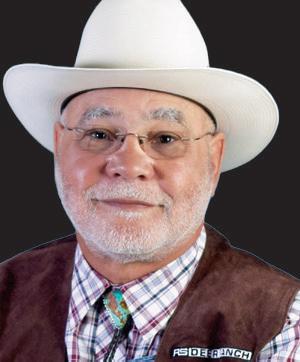

We Must Understand
Roy Douglas Malonson, Publisher
You don’t need a city report to know the truth—just drive around. In wealthier neighborhoods, the streets are smooth, the sidewalks are safe, and the drains don’t over ow every time it rains. Streetlights shine bright, trash pickup is on schedule, and water runs clean from the tap. But in too many Black and working-class neighborhoods, the story is ipped. Potholes linger until they tear up your car, ditches ood and breed mosquitoes, and broken streetlights make it easier for crime to take root. Even the pipes underground are o en older, rustier, and slower to get replaced. is is not bad luck—it’s decades of unequal investment. City governments x what’s visible to money and in uence rst, leaving everyone else waiting. e result?
Black families pay the same taxes,


President Trump will not listen to anyone nor intellectually accept principles of democracy governance. Nor will he adhere to the Godly principles of multicultural humanity enshrined in the Preamble to the U. S. Constitution. America is a multicultural nation-state, not a White European Country. is is why the political divide in America is simply the racial divide. Hence, President Trump is boldly, brazenly, and publicly seeking to White-wash or even deny the ugly aspects of American history by attempting to rewrite America’s troubled racist historical past. Slavery was real and had devastating consequences. Institutional racism did not cease to exist with the passage of the 1964 Civil Rights Act or the 1965 Voting Rights Act. Nor did racism end with the election of Barack Obama, it escalated open racist attacks. Sadly, Donald J. Trump was elected to the Presidency using racism as a campaign platform strategy. Foundationally, Donald J. Trump’s open-blatant racial attacks on President Obama fueled his Presidential campaign and election. Regarding Presidential leadership quali cations, Secretary Hillary Clinton was recognized as a candidate with substantial experience and credentials for the o ce. However, sexism keep her from becoming
but get less in return. Neglected services don’t just make streets ugly—they make them unsafe. Poor drainage creates health risks, dark streets invite crime, and broken infrastructure quietly robs residents through car repairs, medical bills, and lost property value. Waiting quietly has never brought change. Black neighborhoods must demand accountability—public reporting on how long repairs take, where dollars are spent, and which neighborhoods get priority. Voting local is just as crucial, because city hall and utility boards decide where the trucks go rst. And communities can build their own strength by organizing block clubs, churches, and neighborhood associations to document failures, press ofcials, and even secure grants for improvements.
e truth is simple: our taxes are equal, our bills are equal, and our lives are equal. It’s time the services we receive reect that truth.

related illness, while hundreds more were hospitalized for carbon monoxide poisoning a er attempting to run generators indoors. ese tragedies do not strike evenly. ey fall hardest on neighborhoods where families already struggle with higher energy burdens, fewer resources, and limited access to backup power.
Researchers have been studying outage maps from storm a er storm, and the pattern is consistent: power is restored faster in wealthier, whiter neighborhoods, while Black and Latino communities are le waiting. In many cases, the gap stretches a day or two longer, despite similar road access, elevation, or grid design. at means this isn’t just about luck or geography—it’s about systemic decisions in how utilities prioritize recovery.
Utilities defend their actions by pointing to “system e ciency.” e idea is to restore service to the greatest number of customers in the shortest amount of time. On paper, that sounds fair. But in practice, it favors larger circuits that serve a uent neighborhoods while smaller, historically Black communities get pushed down the list. Because those same neighborhoods are more likely to face nancial strain, the cost of delay hits them harder. Every extra day without electricity means missed
paychecks, spoiled groceries, and money wasted on eating out because cooking at home isn’t possible. For families already living paycheck to paycheck, it’s devastating. e deeper truth is that this inequality is rooted in history.
Decades of redlining and disinvestment have le Black neighborhoods with weaker infrastructure, fewer redundancies, and less political power to demand change. Many are closer to oodprone areas, industrial corridors, and aging power circuits. When disaster strikes, they start behind—and the recovery process only widens the gap.
e national picture tells the same story. Lowincome households— disproportionately Black and Latino—are far less likely to have access to backup power like generators or solar storage. at leaves entire communities at the mercy of utility timelines. For medically vulnerable residents who rely on oxygen machines, dialysis equipment, or refrigerated medication, every hour without electricity can be dangerous.
e economic fallout is just as severe. Prolonged outages drain wealth from communities of color through lost wages, spoiled medication, and business closures. For neighborhoods already battling wage gaps and higher unemployment, these repeated nancial blows deepen long-
standing inequities. But this story doesn’t have to keep repeating. Solutions exist. Utilities could publish equitybased restoration metrics, showing not just how many customers are restored but how quickly vulnerable populations get relief. Investments could be targeted to shorten outdated circuits in underserved neighborhoods, build microgrids at senior housing and churches, and create safe community generator programs that reduce health risks. Cities could step up with proactive tree trimming and vegetation management in areas where a single downed branch can leave thousands powerless for days.
Most importantly, regulators and city leaders need to treat outage inequities as a matter of justice, not just technical e ciency. When Black families pay the same utility bills as everyone else but wait longer for service, that’s not e ciency—that’s inequality.
Hurricanes will keep coming. e storms are getting stronger, the summers hotter, and the grid more fragile. e only real question is whether we’ll continue following the same unequal patterns, or nally confront the systemic issues that leave Black communities last in line.
For our neighborhoods, this isn’t just about resilience. It’s about fairness, survival, and long-overdue justice.
“VAST”

EDUCATION



PROGRAM DRIVEN BY RENEE JEFFERSON PATTERSON
By: Judy Foston
Renee Je erson Patterson’s journey is nothing short of extraordinary, a living testament to perseverance, purpose, and the power of the human spirit. From walking the halls of Houston Community College as a young student to now serving as an elected Trustee for HCC District II, her story is a re ection of what happens when determination and compassion meet opportunity.
Married at 18, Renee endured a life-altering loss shortly a er, the triplets she conceived naturally, a pregnancy deemed rare by doctors. While grief could have silenced her, it only fueled her drive to rise, rebuild, and reach back for others.
She returned to HCC, not just to pursue her education but to reclaim her future. Now, decades later, she holds one of the highest positions within the institution that once helped lay her foundation.
But Renee Je erson Patterson’s legacy is bigger than titles. It is built on impact.
Renee, a passionate community advocate, has supported families in retaining their homes, helped children transition out of foster care, and led initiatives to aid seniors in both
rebuilding and protecting their
rebuilding and protecting their homes from foreclosure. She has always been committed to helping those o en overlooked. Today, that same passion fuels one of her proudest achievements, the expansion of the VAST (Vocational Advancement and Skills Training) program to District II. is program helps students with intellectual di erences and disabilities, like autism, ADHD, and Down syndrome, who o en struggle in typical schools. is life-changing program is now locally accessible to families in City Gas, Pleasantville, Fi h Ward, Trinity Garden, Kashmere Garden, and Acres Homes.


every voice is heard and supported. And it takes more than leadership; it takes all of us.
Community members, parents, faith leaders, and educators must come together to spread the word and share what is available. When the community understands what’s possible, they begin to believe in what is achievable.
According to Trustee Patterson, “Everyone knows someone who could gain from this. “It’s more than just policy.”
It’s personal. All children should be able to learn and feel accepted.
Patterson believes that building a stronger Houston Community College means ensuring that every neighborhood, every student, and
“Houston Community College belongs to the people,” Patterson continued. “Our job is to remove barriers, not build them. e path forward requires us to stand together.
e expansion of the VAST program is not just a milestone for Northeast Houston. It is a call to action. A reminder that the foundation of HCC is built not just by buildings, but by bold,


THROUGH THE LENS OF TIME: BLACK HISTORY
1793. e Fugitive Slave Act of 1793 is passed in Congress, securing rights for a slaveholder to recover an escaped slave.
Early 1800. Westward expansion, along with a growing abolition movement in the North, sparks a national debate over slavery.
1807. omas Je erson signs the Act Prohibiting Importation of Slaves.
1845. Frederick Douglass publishes his rst autobiography and bestknown work, Narrative of the Life of Frederick Douglass, an American Slave.

1857. In Dred Scott v. Sandford, the Supreme Court case nds that the U.S. Constitution does not protect or recognize free or enslaved African Americans as citizens.
1863 . Lincoln’s Emancipation Proclamation goes into e ect, changing the legal status of 3 million slaves in designated areas of the Confederacy from “slave” to “free.”
1865.
AUSTIN



TEXAS TAKEAWAY
WACO
Authorities Raid Houston Call Center Operated by Kingdom of God Global Church; Prominent Religious Leaders Arrested Nationwide
Tesla Broadens Austin Robotaxi Coverage for Third Time as Public Launch Nears
SAN ANTONIO
TxDOT Set to Unveil San Antonio’s Tallest Highway Ramp. Reaching 128 feet, the new flyover at I-10 and Loop 1604 will become the highest highway structure in San Antonio and one of the tallest in the nation.
Waco organization supports homeless teens in rebuilding their lives. The Waco Foundation selected The Cove as a recipient of one of its well-known annual grants in recognition of their service to the community.
DALLAS
Beloved Dallas public relations icon Stan Levenson has died at the age of 91. Known for his decades-long career and influential work with major brands and nonprofits, Levenson was a fixture in the city’s media and philanthropic circles. His legacy leaves a lasting impact on Dallas’s PR landscape and the countless lives he touched through his work and generosity.
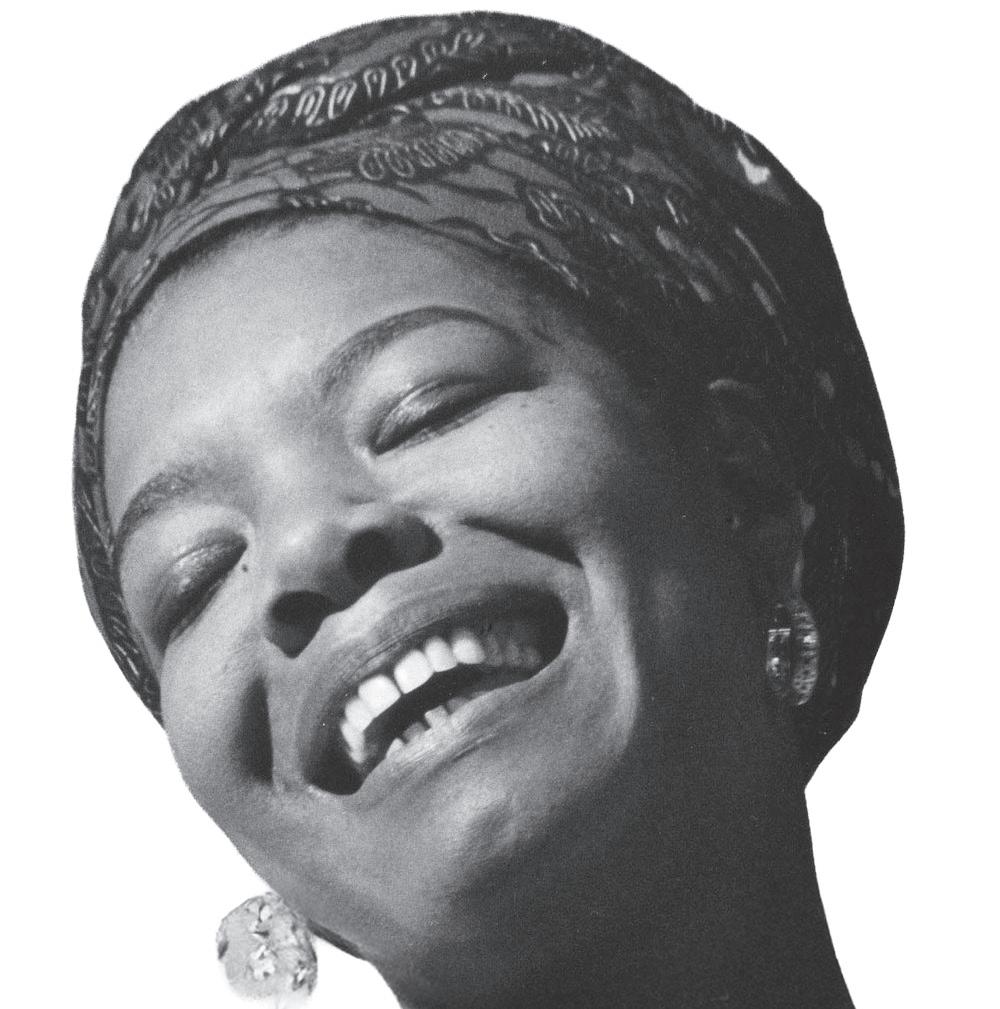

Maya Angelou was a celebrated American poet, writer, and civil rights activist known for her autobiographical works, most notably I Know Why the Caged Bird Sings. Her in uential writing and passionate activism documented the Black experience in America and advocated for social justice, earning her numerous awards, including the Presidential Medal of Freedom. Angelou’s diverse career also included roles as a singer, dancer, actress, and educator, leaving a lasting legacy as a powerful and inspiring cultural gure.
POLITICAL
LWV CONDEMNS HARMFUL TEXAS GERRYMANDERED MAPS KEY BILLS ADVANCING IN THE TEXAS LEGISLATURE
By: Kayla Vix
Today the League of Women Voters of the United States and the League of Women Voters of Texas issued the following statement in response to the Texas legislature passing new congressional maps:
“The Texas mid-cycle redistricting map is designed to rig elections and silence voters. This scheme was fueled by a directive from President Trump in a desperate attempt to cling to power.
Governor Abbott and Texas Republicans are abusing the redistricting process to bow down to an unpopular president who has no shame in thwarting the Constitution for his own benefit.
“The League of





And Texas, in particular, has a history of using gerrymandering to harm Black and brown communities.
Texas Latino voters, whom Trump tokenized during his campaign, are already being terrorized by ICE raids and increased police profiling, and now the President’s gerrymandering scheme will further dehumanize this community.
politically assault voters.
By: Bob Hall
“The US Constitution and federal law establish that redistricting occurs once every ten years, following the Census. Handing the President a larger margin is not a legal or democratic justification for politicians to redraw maps mid-cycle. By defying this long-standing practice meant to create order and stability, Texas lawmakers are destabilizing elections, stripping communities of fair representation, and corroding the foundations of our democracy.
The Texas Legislature is nearing adjournment of its second special session, wrapping up weeks of debate and decision-making. Several key bills addressing emergency preparedness, property tax reform, water policy, public safety, and youth protections are on their way—or soon headed—to the Governor’s desk. Here’s where things stand today.
ter Management Overhaul: Expands emergency manager licensing, volunteer management, drone neutralization, ood planning, and fatality response. (House amended; awaiting Senate concurrence)
SB 3 – Flash Flood Warning Sirens: Requires outdoor warning sirens in ood-prone areas. (House amended; awaiting Senate concurrence)
✓ Medical Freedom

not stand by while elected officials trample the Constitution and rewrite the rules

“Texans deserve fair maps drawn to reflect their communities — not partisan lines manipulated to entrench power. Together, the League of Women Voters of the United States and the League of Women Voters of Texas will not stand by Women Voters has consistently opposed partisan ing and midcycle redistricting because these tactics disenfranchise voters.
“Voters — not politicians — must choose their leaders. The League will continue to fight gerrymandering in Texas and any state that seeks to
SB 5 – Disaster Relief Appropriations: Provides $294M for FEMA match, ood recovery, forecasting, and rst responder training. (In Conference Committee)
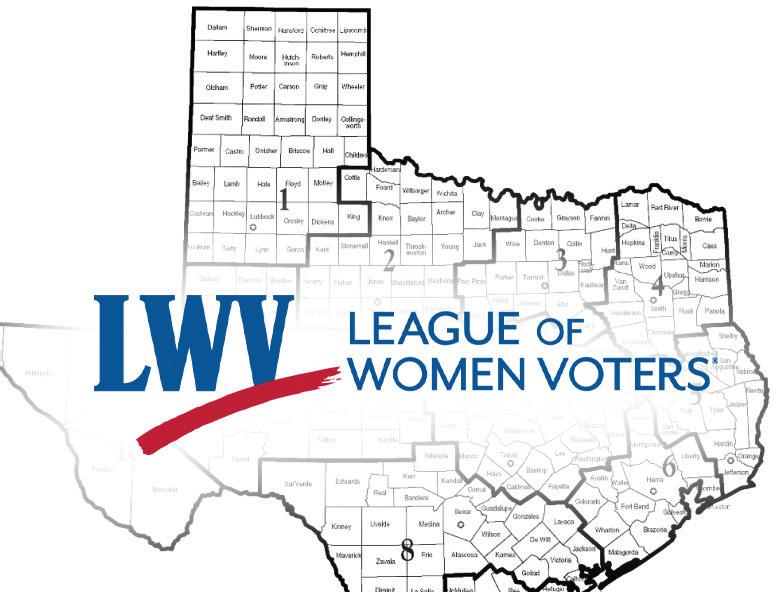
HB 25 – Freedom to Dispense Ivermectin – Relating to a pharmacist’s authority to dispense ivermectin without a prescription. (In Senate Committee)
continue fighting to stop this
as and any state that seeks to silence the voices of voters in our democracy. Texas should expect the League to continue fighting to stop this attack on democracy.”
& Youth Safety
✓ Emergency Preparedness & Youth Safety


HB 1 – Youth CAMPER Act: Improves youth camp safety— bans cabins in oodplains, mandates emergency plans, and creates a reporting system. (In Senate Committee)

SB 1 – Campground & Camp Safety: Requires licensed camp listings, updated safety standards, communication tools, and evacuation plans.


(Still in House Committee)

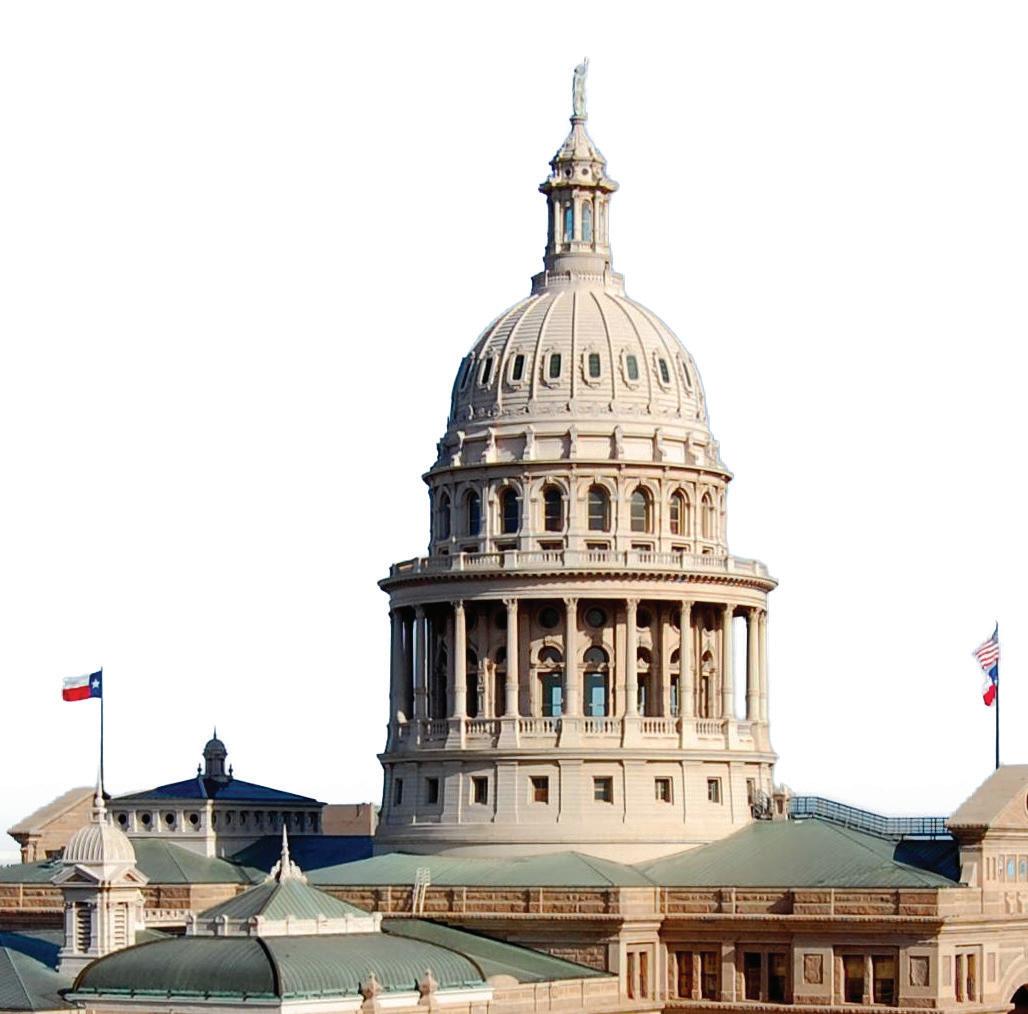
SB 2 – Disas-
HB 3 – Emergency Communications Interoperability: Establishes the Texas Interoperability Council and funds radio system upgrades.
Legislature on pg. 6






MARGARET FORD FISHER NAMED 2025 ACCT WESTERN REGIONAL CEO AWARD
By: Dwight Daniels
Houston City College (HCC)
Chancellor Margaret Ford Fisher, Ed.D., has been selected as the recipient of the 2025 Western Regional Chief Executive O cer Award by the Association of Community College Trustees (ACCT).
e honor will be presented during the Annual ACCT Leadership Congress in New Orleans, La., in October.
“ is award represents the hard work and commitment of the HCC faculty and sta to serve our students,” Dr. Ford Fisher said. “ eir success— preparing students, whether in Houston or abroad, to thrive in a modern, interconnected economy—is what drives us forward. And this award re ects their magni cent work.”
With an annual enrollment of more than 95,000 students, HCC is one of the largest community colleges in the nation. For more than ve decades, the institution has been deeply rooted in the Houston region, with campuses across the city and a reputation for providing exible, accessible education that meets the needs of a diverse community. rough its Global Online College, HCC is connecting with new audiences around the world.
“ e HCC team is building partnerships across industry and the community to grow as a future-focused institution that connects education to opportunity and empowers students to lead in a rapidly
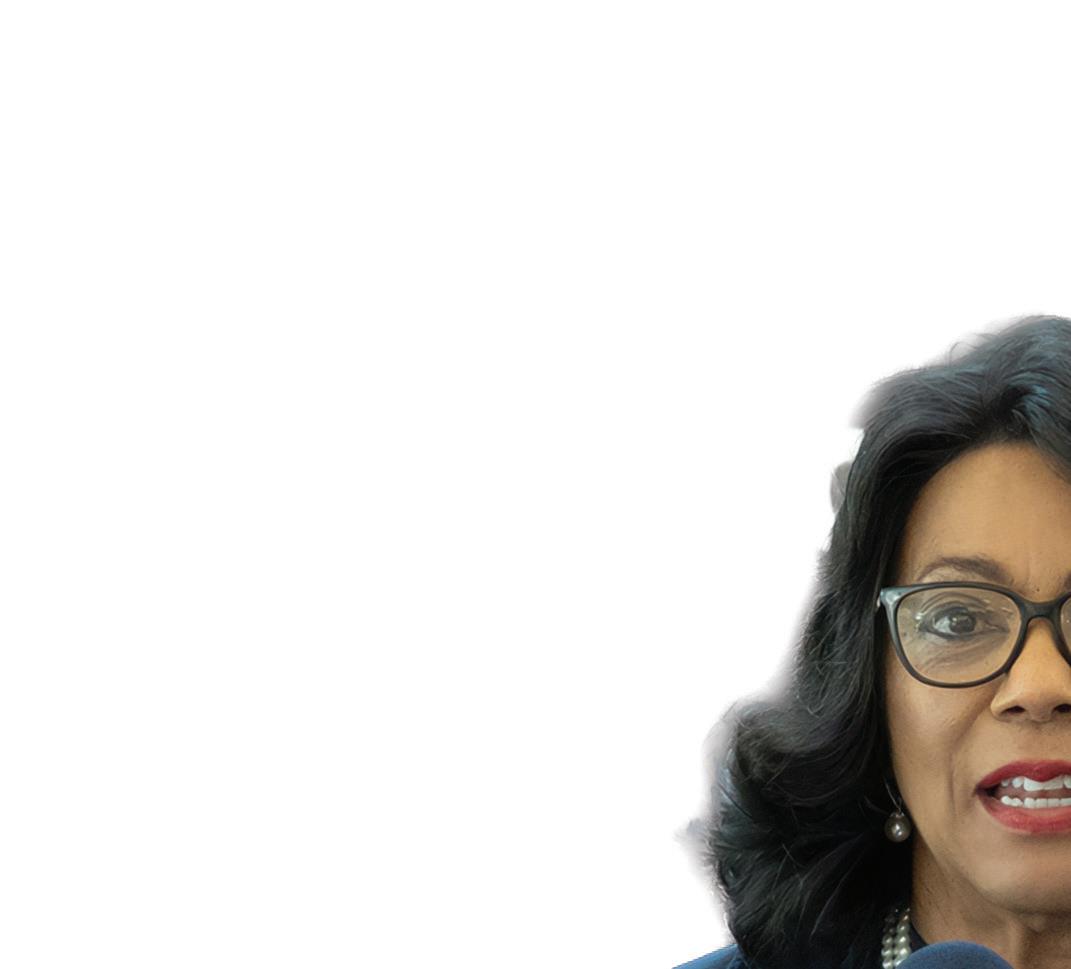


Legislature Cont.
(In Senate Committee)
HB 20 – Disaster Charity Fraud Prevention: Creates voluntary accreditation and penalties for disaster relief fraud. (In Senate Committee)
HB 22 – Emergency Communication Funding: Expands use of broadband funds for early warning and alert systems. (In Senate Committee)
✓ Judicial & Criminal Justice Reforms
HB 16 – Judicial Updates: Modernizes court procedures, security, records, and juvenile diversion. (Passed; headed to Governor)
SB 11 – Human Tra cking Victim Defense: Provides afrmative defense for victims forced into criminal acts. (Passed; headed to Governor)
evolving world.” Dr. Ford Fisher added.
evolving world.” Dr. Ford Fisher added.

roughout her distinguished career, Dr. Ford


advocate for digital equity, workforce alignment, and inclusive academic pathways—




shaped her transforship at HCC.
roughout her distinguished career, Dr. Ford Fisher has been a vocal advocate for digital equity, workforce alignment, and inclusive academic pathways— principles that have shaped her transformative leadership at HCC.







✓ Congressional Redistricting
HB 4 – Adopts PLANC2331; keeps Navarro County whole. (Passed by both chambers; headed to Governor)
✓ Property Tax Reform
SB 12 – Election Law Prosecution: Grants the Attorney General authority to prosecute election law violations. (Passed; headed to Governor)
SB 34 – Legislative Testimony Immunity: Grants immunity to compelled witnesses, though they may still face indictment. (In House Committee)
✓ Other Priority Reforms






Ford Fisher as the sole the Western Region for ACCT’s most prestigious recognition,






HB 17 – Property Tax Transparency: Requires detailed tax notices including in ation and population data. (On Senate Floor)
HB 23 – Nonpro t Property Tax Exemption: Provides exemptions for nonpro t-owned property used for agriculture, youth, and education. (In Senate Committee)
SB 6 – Hemp Product Regulations: Requires licenses, bans unsafe products, and establishes penalties. (In House Committee)
Martin Chief O cer Award. at for the rst time during the ACCT Annual Awards Gala on Oct. 24,



As the Western Region honoree, Dr. Ford Fisher will also serve as the sole nominee from the Western Region for ACCT’s most prestigious recognition, the Marie Y. Martin Chief Executive O cer Award. award will be announced for the rst time during the ACCT Annual Awards Gala on Oct. 24, 2025.
SB 10 – Property Tax Cap Calculation: Adjusts how voter-approval tax rates are calculated. (House amended; awaiting Senate concurrence or conference)
✓ Water Reforms
SB 8 – Protecting Women’s Spaces: Requires facility use based on biological sex; establishes civil penalties. (Headed to House Calendars)
SB 13 – Ban on TaxpayerFunded Lobbying: Prohibits use of public funds for lobbying by local governments. (In House Committee)

e ACCT Leadership Congress is the nation’s premier event for community college leaders, trustees and policymakers, drawing participants from across the country to share strategies, celebrate achievements and shape the future of higher education.
e ACCT Leadership Congress is the nation’s premier event for community college leaders, trustees and policymakers, drawing participants from across the country to share strategies, celebrate achievements and shape the future of higher education.

HB 27 – Groundwater Transfer Moratorium: Halts new transfers in the Neches & Trinity Valleys GCD until 2027 pending a TWDB study. (In Senate Committee)
SB 16 – Deed Fraud Crimes – Criminalizes real property the /fraud; adds recording, restitution, and statute of limitations. (House amended, Senate will review for concurrence)
SB 14 – Water Conservation Credits: Grants developers credits for conservation/reuse projects. (Passed; headed to Governor)
Same Day Voter Registration – Prohibits of same day voter registrations within 30 days of an election. (Passed the Senate, heading to the House)

CHANCELLOR MARGARET FORD FISHER,
ED.D.


SB 18 – Reservoir Permitting Exemptions: Exempts small erosion/ oodwater reservoirs from TCEQ permitting. (Passed; headed to Governor)







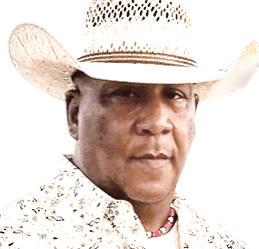


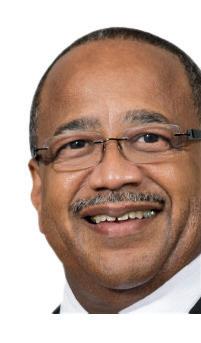










































GREAT EDUCAT RS THE HEART OF LEARNING STARTS WITH
Nominate a deserving teacher, counselor, principal, early childhood learning center, school board or school district.










Created in 2002, the H‑E‑B Excellence in Education Awards was designed to honor and thank outstanding public school professionals. Through this program, H‑E‑B awards over $780,000 annually to deserving educators who go the extra mile to serve their students and communities.


To submit a nomination or application, go to HEBLovesTeachers.com Deadline for nominations September 30























